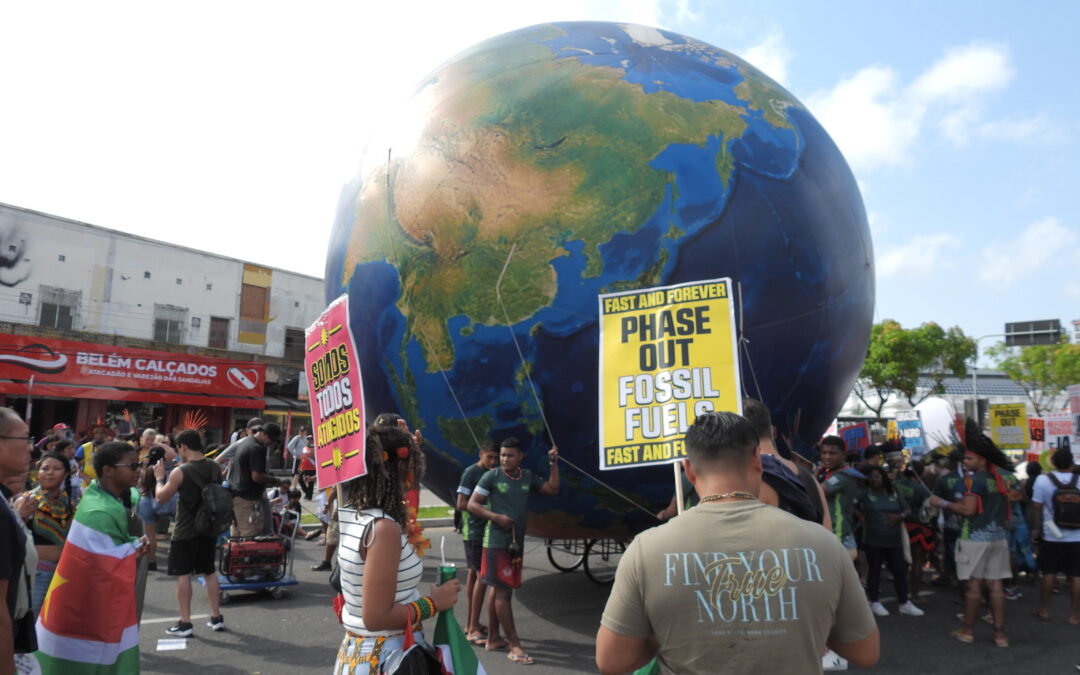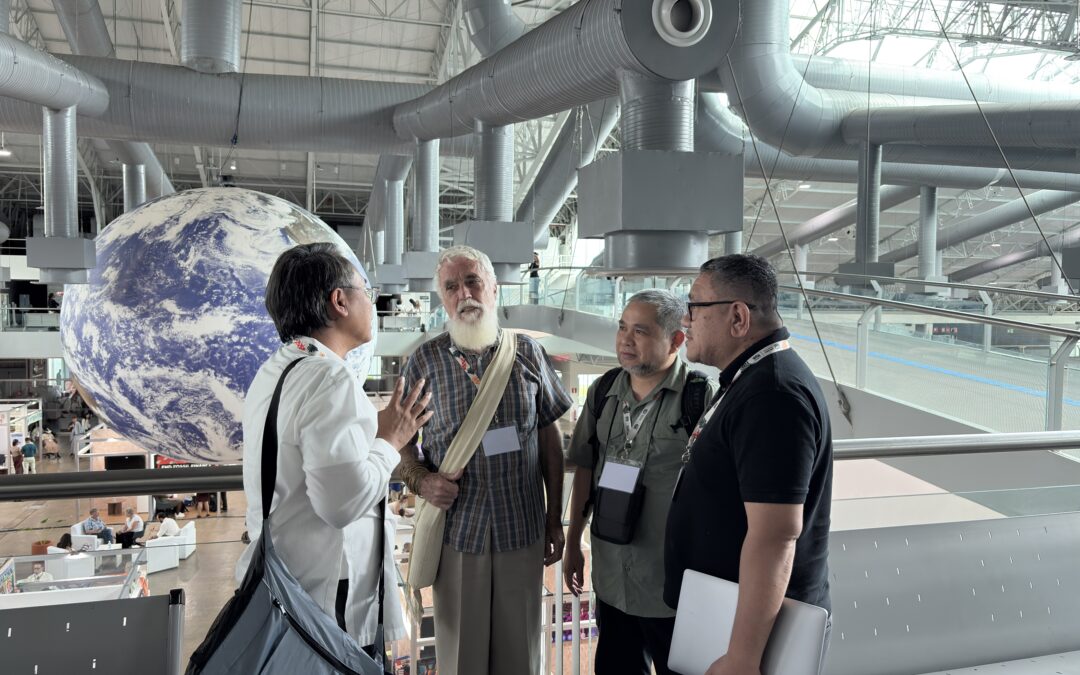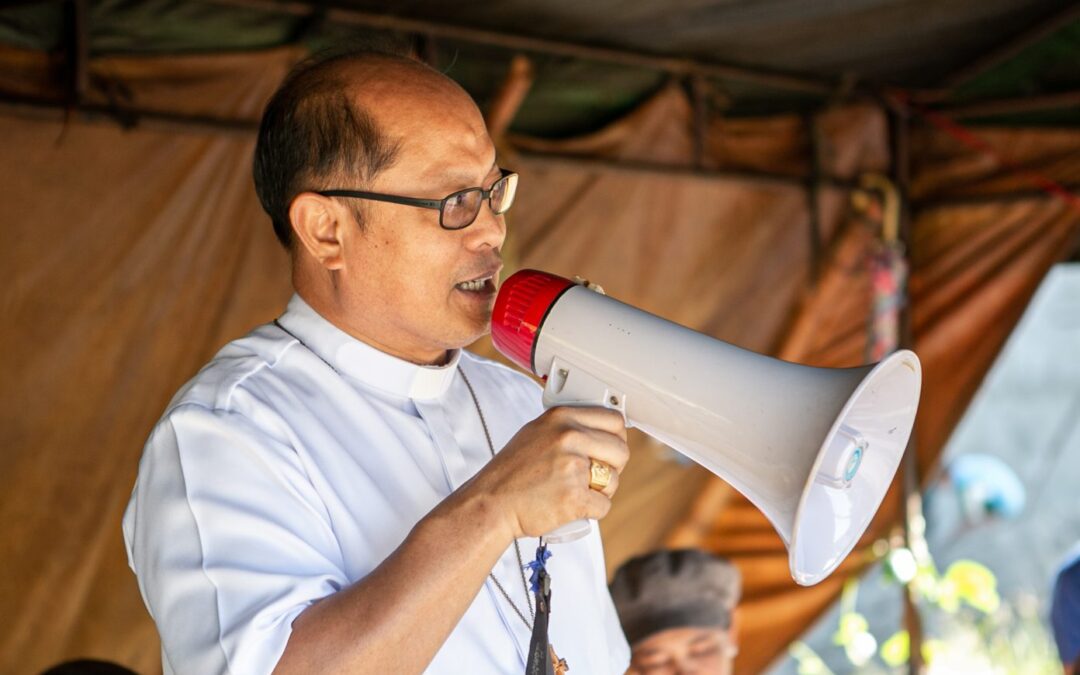National Catholic Reporter’s interview with Living Laudato Si Philippines.
Q 1. What do you remember from Pope Francis’ visit to the Philippines, especially his visit to Tacloban City two years after Super Typhoon Haiyan?
A. Pope Francis is only the third pontiff to visit the Philippines, but his stop in Tacloban and Palo was so significant given the devastation brought by Haiyan. Even though it has been more than a year by that point since the landfall of the super-typhoon, thousands of Filipinos were still reeling from the loss and damage inflicted on them and looking for guidance on their recovery from such a tragedy. The Pope’s presence mattered so much for a predominantly Catholic nation, especially in Tacloban and Palo.
Q 2. What did it mean for him to visit a region devastated by a typhoon, and essentially on the frontlines of climate change before issuing his encyclical Laudato Si’?
A. Pope Francis’s visit is a powerful message that in the era of the climate emergency, the Catholic Church listens to the cries of the earth and the poor. His presence within the frontline communities hit by Haiyan not only provided comfort and hope for the residents but is also symbolic of an institution that values and upholds the innate solidarity that bonds all life together and helps us overcome crises we are facing. It is also an indicator that the Church recognizes the realities brought by anthropogenic climate change, and is ready to step up even more in providing leadership in ecological matters.
Q 3. How would you describe Pope Francis’ impact on ecological concerns within the Catholic Church? Are there particular initiatives, messages, actions that stand out as most substantial with regard to environmental issues and climate change?
Under his leadership, we have seen a more visibly proactive Catholic Church in addressing ecological concerns by providing new frameworks and pathways for ecologically-sustainable actions grounded on our humanity. From our perspective, the release of “Mensuram Bonam” and the launch of the Laudato Si’ Action Platform (LSAP) stand out as among the most substantial initiatives from the Vatican, as these address existing needs and gaps regarding fossil fuel divestment and operationalizing the Laudato Si’, respectively. Both initiatives also have the potential for cascading sustainable attitudes and habits critical for developing a long-term culture of ecological citizenship.
Q 4. Reflecting on these 10 years, are you surprised that a pope has come to be seen by many as a world leader on environmental issues? What’s the significance of that?
A. We are not surprised that Pope Francis has become a world leader on environmental issues. Protecting the environment has always been an integral part of Catholic doctrine, which has been highlighted more largely due to his messages within the Laudato Si’. With higher awareness in the present about the numerous manifestations of the ecological crisis such as climate change and plastic pollution, Pope Francis’s leadership provides a timely moral and ethical voice that resonates with millions around the world and may inspire them to implement solutions.
Q 5. Your organization is named after Pope Francis’ landmark encyclical, Laudato Si’, and working to engage Catholics around its messages. From that point of view, how has he animated Filipino Catholics at the ground level around environmental issues and church teaching around ecology and creation care?
A. There has been a higher awareness among Filipino Catholics of sustainable living and caring for life around them in recent years. We have observed more individuals and communities conduct campaigns and initiatives on ecological education, fossil fuel divestment, food self-sufficiency, climate action, and upholding human rights and dignity grounded on Catholic social teachings, such as the Laudato Si’.
Q 6. In what ways have you seen the local church — from dioceses to parishes and lay groups — responding to the pope’s various calls for greater care of the planet?
A. Through our constant engagements with religious leaders, we have successfully lobbied for the Catholic Bishops’ Conference of the Philippines (CBCP) to publish two pastoral letters in 2019 and 2022, covering ecological citizenship and addressing the climate emergency in the local context. Based on the Laudato Si’ and other doctrines, these encyclicals contain key pledges such as a set of 13 ecological actions that Catholics should live by to better take care of our world, and the CBCP to withdraw all of its assets from banks funding fossil fuel projects by 2025. Several dioceses have also taken leadership in calling for environmental protection and more sustainable practices, such as the initiative of Negros Occidental’s bishops to call for a just transition to renewable energy in their province.
Q 7. What do you hope that Pope Francis might do within the next years of his papacy around ecological issues? How might he be most impactful in the years ahead?
A. With the Holy See becoming an official Party to the UNFCCC and eligible to actively participate in global negotiations, we hope to see under Pope Francis a more vocal and influential Catholic delegation in upcoming climate talks as it is linked to the mandate of taking care of our common home. We also hope that the LSAP will have a larger reach and stronger impact on communities worldwide, given its role in turning the imperative of ecologically-sustainable actions from a solution to a daily part of our living.






0 Comments